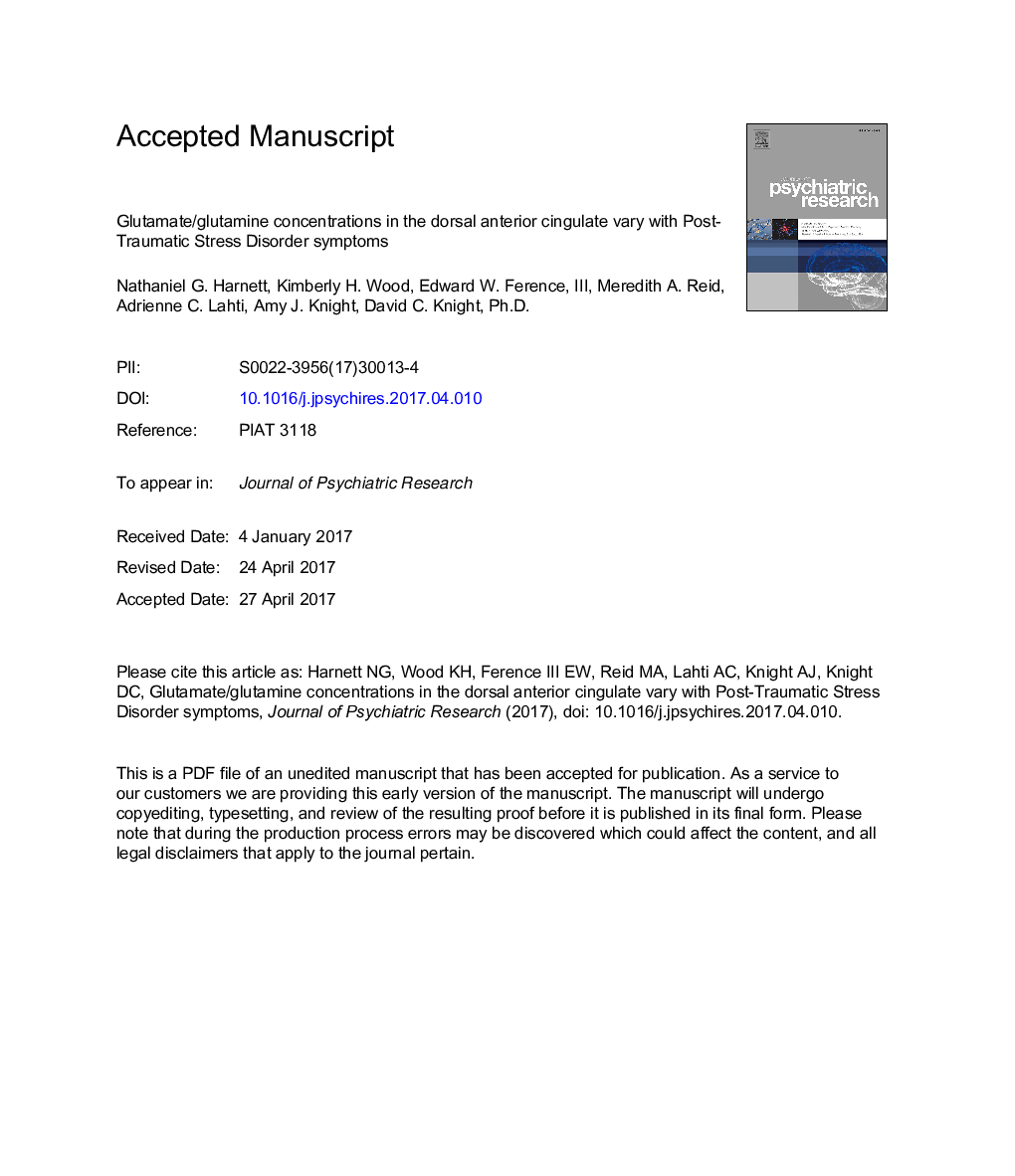| Article ID | Journal | Published Year | Pages | File Type |
|---|---|---|---|---|
| 4932080 | Journal of Psychiatric Research | 2017 | 36 Pages |
Abstract
Trauma and stress-related disorders (e.g., Acute Stress Disorder; ASD and Post-Traumatic Stress Disorder; PTSD) that develop following a traumatic event are characterized by cognitive-affective dysfunction. The cognitive and affective functions disrupted by stress disorder are mediated, in part, by glutamatergic neural systems. However, it remains unclear whether neural glutamate concentrations, measured acutely following trauma, vary with ASD symptoms and/or future PTSD symptom expression. Therefore, the current study utilized proton magnetic resonance spectroscopy (1H-MRS) to investigate glutamate/glutamine (Glx) concentrations within the dorsal anterior cingulate cortex (ACC) of recently (i.e., within one month) traumatized individuals and non-traumatized controls. Although Glx concentrations within dorsal ACC did not differ between recently traumatized and non-traumatized control groups, a positive linear relationship was observed between Glx concentrations and current stress disorder symptoms in traumatized individuals. Further, Glx concentrations showed a positive linear relationship with future stress disorder symptoms (i.e., assessed 3 months post-trauma). The present results suggest glutamate concentrations may play a role in both acute and future post-traumatic stress symptoms following a traumatic experience. The current results expand our understanding of the neurobiology of stress disorder and suggest glutamate within the dorsal ACC plays an important role in cognitive-affective dysfunction following a traumatic experience.
Related Topics
Life Sciences
Neuroscience
Biological Psychiatry
Authors
Nathaniel G. Harnett, Kimberly H. Wood, Edward W. III, Meredith A. Reid, Adrienne C. Lahti, Amy J. Knight, David C. Ph.D.,
